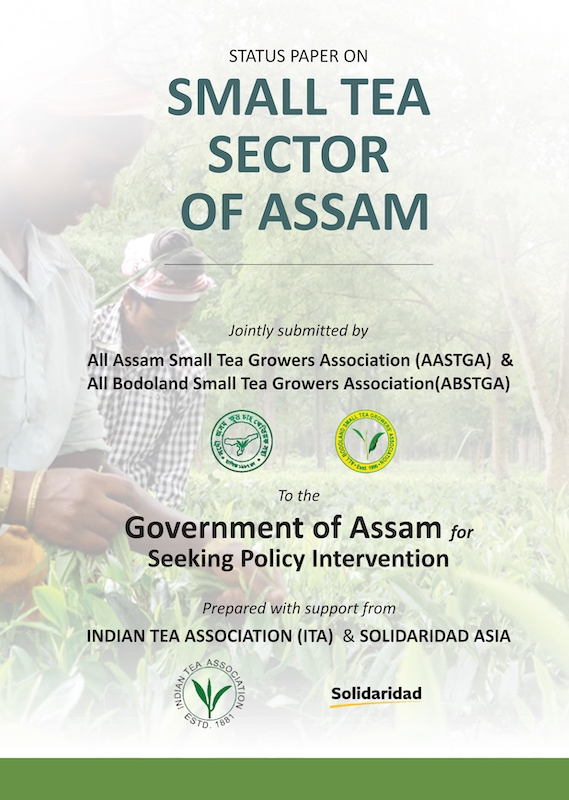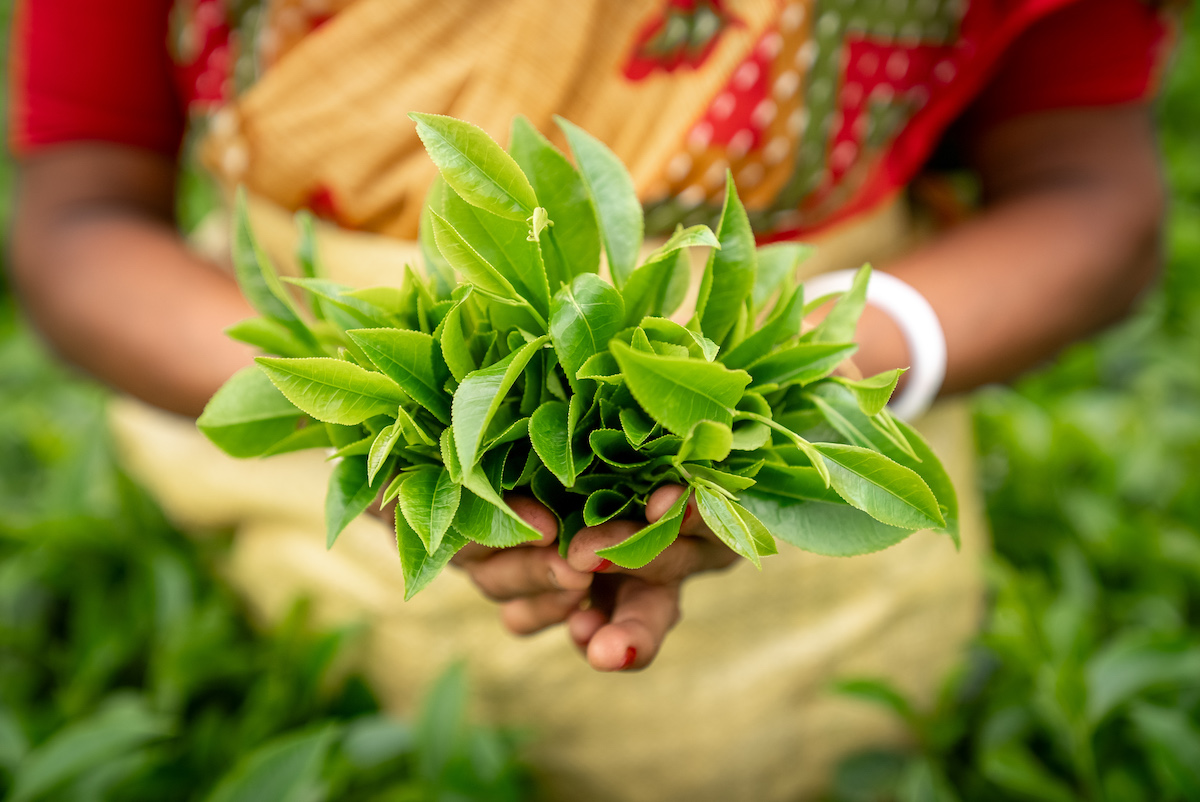The All Assam Small Tea Growers’ Association and All Bodoland Small Tea Growers’ Association, supported by the Indian Tea Association and Solidaridad Asia, recently submitted the “Status Paper on Small Tea Sector of Assam” to the Government of Assam. The paper laid out, in detail, the challenges faced by the state’s small tea growers, and made key recommendations to overcome these issues.
In India, small tea growers (STGs) represent an increasingly important demographic. Their rising presence and significance is evident from their contributions to the country’s tea sector. In 2022, they contributed to around 52 percent of India’s tea output, compared to 11 percent in 2001. Today, approximately 230,000 STGs produce more than 691 million kilograms of tea cultivated on around 200,000 hectares of land.
Assam stands as the largest tea-producing state in India, accounting for nearly 51 percent of the nation’s output. Of this, nearly 48 percent is produced by more than 122,000 STGs in the state who cultivate tea on approximately 114,000 hectares of land.
Despite their prominence and vital contributions to the sector, STGs in Assam continue to face the brunt of several structural issues and critical challenges. These include:
- Limited bargaining power: Due to small landholdings, growers struggle to negotiate fair prices with leaf agents, bought leaf factories (BLFs), and input suppliers.
- Limited access to financial support: There is inadequate financial backing for infrastructure development in areas such as processing, storage, and value addition, which could help reduce dependence on intermediaries.
- Limited access to training and technology: Compared to their counterparts in the organized sector, small tea growers have limited access to training on good agricultural practices (GAPs), extension services, technology adoption, and digital tools.
- Price distortion: Intermediaries and tea factories often cause price distortions, leading to suboptimal price realization for small tea growers.
The lack of access to various schemes available to small farmers in the agricultural sector, coupled with low price realization, raises serious concerns about the viability of STGs. If these trends persist, there is a risk that the growers may shift away from tea cultivation, which would not only impact the tea supply in the country but also affect the livelihoods of thousands of people directly and indirectly associated with the tea industry. This, in turn, would hinder economic development in remote regions with limited alternative livelihood opportunities.

To address these issues, the status paper made the following recommendations to the government of Assam:
- Ensure fair and remunerative prices for small tea farmers
- Provide training on good agricultural practices (GAPs) and climate-smart agriculture
- Extend the benefits of schemes that are applicable to agricultural farmers to STGs as well
- Establish authorized field input supply centres in major tea-growing districts of Assam for growers to access inputs approved for use in tea gardens
- Promote STG collectives
- Facilitate financial linkages for small collectives and provide loan guarantees
- Support the establishment of micro and mini tea factories by small growers
- Prevent the influx of green-leaf tea from neighbouring states
- Develop agri-export zones
- Explore higher value for green-leaf tea through technological innovations
Assam’s minister posted a response to the report:
Indian Tea Association (ITA) আৰু Assam Branch Indian Tea Association (ABITA)-ৰ বিষয়ববীয়াই আজি বিধানসভাৰ কাৰ্যালয়ত আমাক সাক্ষাৎ কৰি 'Status Paper on Small Tea Sector of Assam' শীৰ্ষক পুস্তিকা প্ৰদান কৰাৰ লগতে তেখেতসকলৰ সৈতে চাহ উদ্যোগৰ বিভিন্ন বিষয়ত আলোচনা কৰোঁ।
এই বিশেষ… pic.twitter.com/oaxoIHsCVz
— Bimal Borah (@BimalBorah119) March 25, 2025

